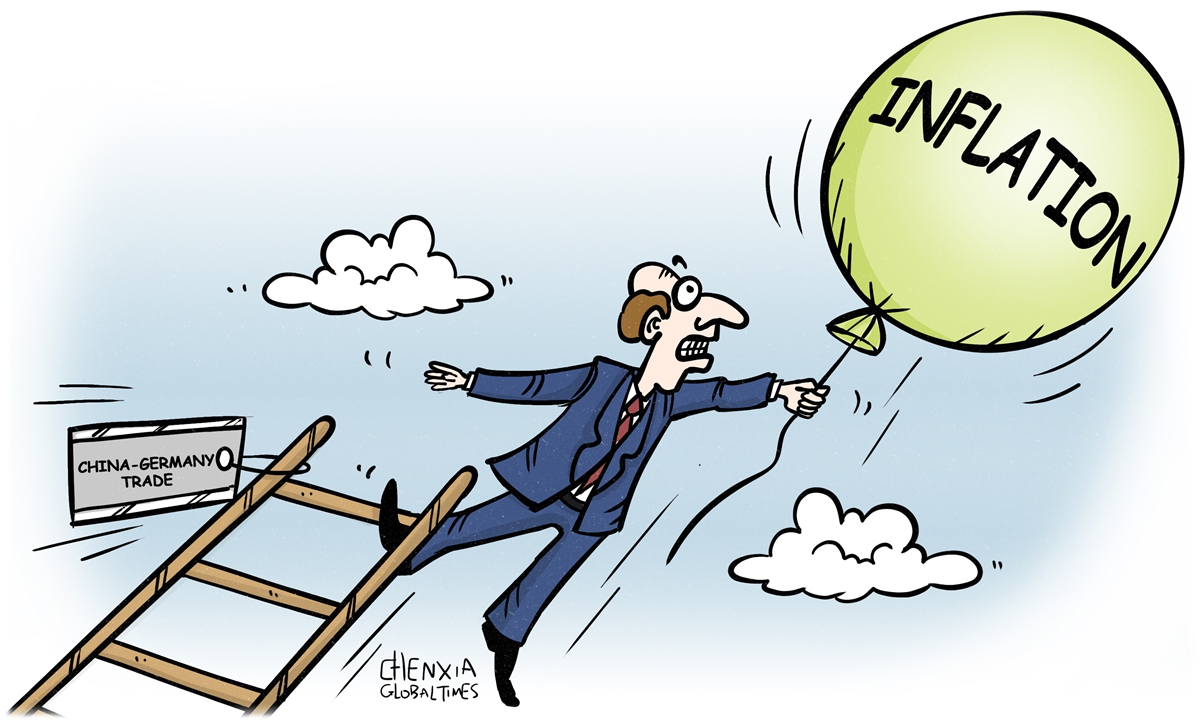
Illustration: Chen Xia/Global Times
Starting from October 1, Germany will impose new gas levy on average households. The move, in response to an energy supply crunch and price rising, is expected to escalate the inflation pressure in Europe's largest economy, pushing up economic costs and further weighing on the economy that faces recession risks.The new gas levy is estimated to cost German households nearly 500 euro ($478) per year, according to the tax rate published in August. As the country has reported a 7.9 percent inflation rate for August, the highest level in five decades, the gas tax will escalate the burden on average German families this winter.
German think tank Kiel Institute for the World Economy recently warned that high energy prices will push German economy into recession. During next year, the German economy is expected to contract by 0.7 percent, and the inflation rate is expected to reach 8.7 percent, the think tank predicted.
However, facing thorny economic conditions, German politicians have been intensifying hype over "reducing dependency on China" lately, and the country's economy minister Robert Habeck said on September 13 that his ministry is working on a new China-related trade policy.
Recently, some German politicians' increasing rhetoric about "economic decoupling" from China are causing dissatisfaction in the economic community. Many people in the business community warned that it is not in Germany's interests to decouple from China economically. They believe that the proper presence in China, a key growth market, is very important, not only for individual German companies, but also for the overall German economy.
"Government support and protection of German companies' business in China must remain, in principle," Friedolin Strack, chief executive of the Asia-Pacific Committee of German Business (APA), said recently, according to German media outlet Deutsche Welle.
Germany has been one of the biggest beneficiaries of China's reform and opening-up for the past four decades. Whether large manufacturing enterprises or small and medium-sized enterprises, a considerable amount of German businesses have obtained rich returns from the Chinese market.
In 2021, the trade volume between China and Germany reached $235 billion, according to Chinese customs data, and China has remained Germany's largest trading partner for six consecutive years. Although the COVID-19 epidemic has repeatedly disturbed market stability, and had a certain impact on China-German trade, more than half of German enterprises are still optimistic about their prospects in the Chinese market.
Frequent advocacy of "decoupling from China" and transferring the industrial chain from China are obviously harmful to the German economy and enterprises, especially when the German economy is facing the risk of recession. This will only make Germany's severe inflation and employment situation worse, and aggravate its current economic predicament.
According to a research report published by Munich-based research group ifo Institute in August, an economic "decoupling" of the EU and Germany from China would cost the German economy almost six times as much as Britain's exit from EU, or Brexit.
It's hoped that German economic policy makers will be wary of rhetoric to "reduce dependency on China."
One of the simplest principles of market economics is: Where the market is stable, purchasing power is strong, and the production is efficient, businesses should increase input there. German policymakers should listen to market players when it comes to making policy toward the Chinese market, instead of following political prejudice.
The author is a reporter with the Global Times. bizopinion@globaltimes.com.cn



